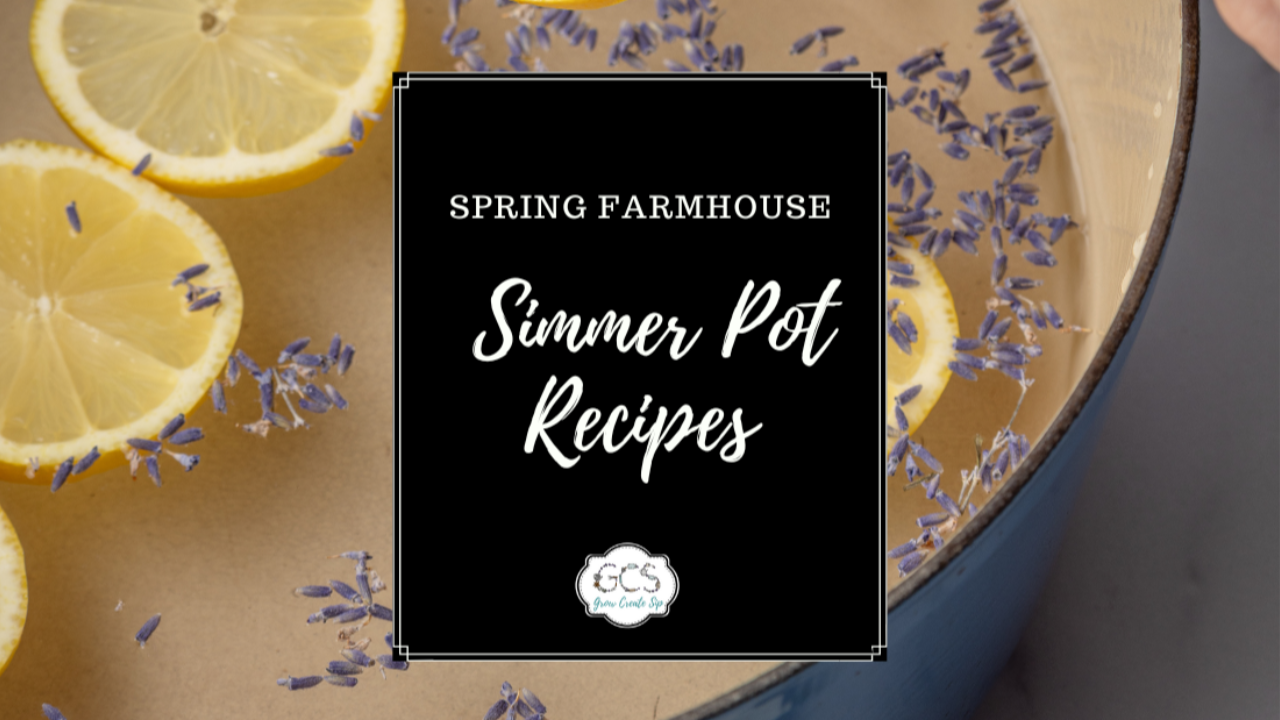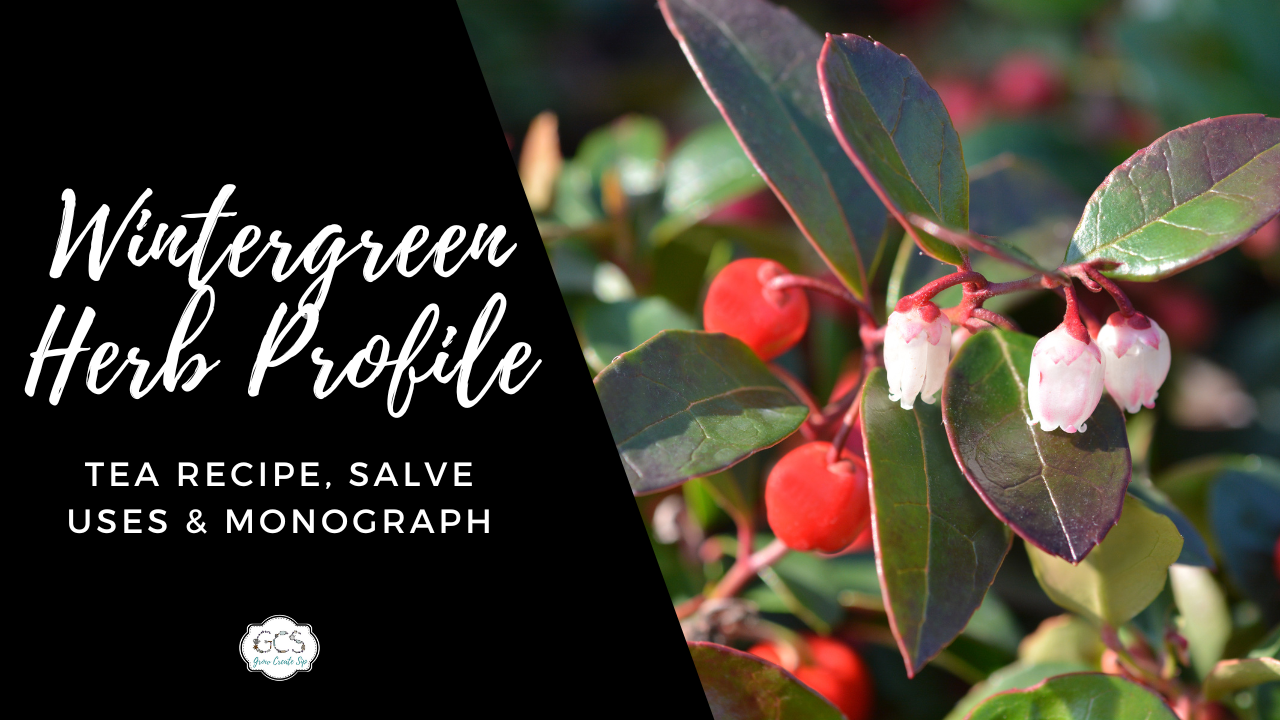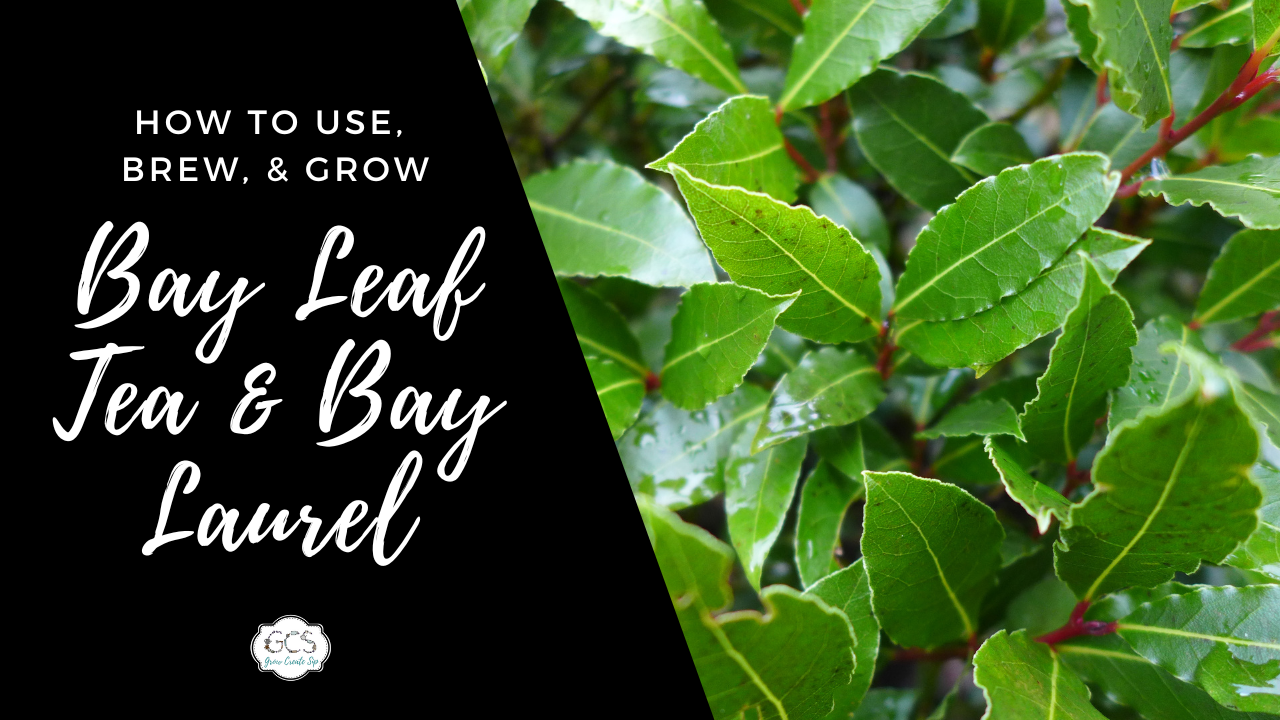Is Herbal Tea Better than Green Tea? Part II
Sep 09, 2018
Ah summer! There are not many days of you left. Autumn is creeping in, the leaves on the trees are turning golden. The blackberries have dried on the vine from the summer sun and pumpkin spice season is almost here! With fall comes tea season, and dare I say, cold and flu season? What better way to embrace both than with a cup of herbal tea. Or should it be green tea?
Earlier in the month we discussed the benefits of drinking green tea. From the benefits of green tea for men, using green tea for skin and weight loss. Even putting green tea in your hair! Yep, I do that! While the benefits of green tea are many, we are going to dive into the many, many benefits of herbal tea. And maybe, just maybe, we will find out if green tea is better than herbal tea or the other way around!
This post may contain affiliate links. Yes! We do get a commission off anything that you may purchase from them. This doesn't change the price of the item but it helps our family and farm to run and be able to provide this life style for our adopted children. Thank you for your support!

Benefits of Herbal Tea for Weight Loss
While the very best way to help shed unwanted pounds is through a whole foods, plant based diet and that "e" word.... exercise (shhh!!!). Herbal tea may still be an intricate part in loosing that unwanted weight.
Herbal teas are usually made from fruits, spices, herbs and flowers. Herbal teas fit very well into a healthy plant based diet. Plant based meaning lots of veggies and whole grains. Herbal teas are different than green tea as green tea comes from the camellia sinensis plant rather than other herbaceous plants like peppermint and chamomile.
According to Healthline.com, one study showed that rats given herbal tea not only had reduced body weight but also hormone levels that normalized. Another study showed that rooibos tea (herbal tea), from an African plant, increased fat metabolism as well as blocked the formation of fat cells.
Herbal teas are very low in calories which helps lower your over all calorie intake. Herbal teas may also replace other non-healthy drinks such as soda/pop or other energy drinks. They are low in sugar and still pack lots of flavor. Herbal teas may also be drunk in place of desserts such as a dessert or chocolate tea.
According to Livestrong.com, in the 2010 "Journal for Nurse Practitioners" herbal teas support weightless by removing poor diet choices and cutting out high calorie and high sugar drinks.

Herbal Teas for Sore Throat
As mentioned before, while tea season is coming, so is cold and flu season. With that sore throats are sure to be on the list. Herbal tea benefits are really going to shine here over the benefits of green tea. Herbs like marshmallow root, sage, echinacea, licorice root, ginger root, cinnamon, peppermint and chamomile are great for taming that sore throat. Not only are the herbs beneficial but the fact that they are steeped as a hot tea adds to the benefits for your sore throat. Hot tea is sure to soothe and calm!
Marshmallow root tea has sort of a gelatinous texture, like watered down gelatin. This helps to coat the throat making it less bothersome.
Sage, oh sage. I personally don't care for the flavor but that doesn't change this herbs usefulness. A study listed on Medical News Today states that, "It has been used to treat many inflammatory conditions." Sage is astringent, anti-septic, and aromatic. To brew up a cup steep 1 tablespoon of dried sage leaves into 8 oz of hot water for 10-15 minutes. Strain out sage and add honey and lemon as desired.
Echinacea is a very well known herb for colds and flu. Learning Herbs notes that echinacea is helpful to strep throat. This herb is best taken as a preventative to sore throats when others around you are coughing, sneezing or have the sniffles. Also, this is one herb not to use on a daily bases and most helpful used only when needed for a short period.
Licorice Root, nope not black licorice candy, licorice root the herb tastes very little like the candy. The candy DOES get its sweetness from this herb but most of the actual flavor many of us know as licorice comes from anise seed. Licorice root has a sweet earthy flavor. According to Livestrong.com, licorice has been known for soothing coughs and digestive tract ailments. It is a demulcent, helping to thin phlegm as well as an expectorant clear and congestion from the lungs. There are some side affects for those with blood pressure issues so please consult your physician if this is you.
Ginger root, while spicy, helps to flush out toxins and boost blood circulation. It is also anti-inflammatory so it helps to kill bad bacteria. This warming tea can assist in calming an inflamed throat. Make a simple cup by grating some fresh ginger in hot water, steep about 5 minutes, strain and sweeten with some local raw honey.
Cinnamon is helpful to sore throats because it is also warming, anti-bacterial and anti-fungal. Its also anti-inflammatory so it will, like ginger root, help to calm the inflamed throat. Aside from throats it is also very helpful for indigestion and other digestive ailments. Cinnamon tea is a very warming and sweet drink easily made with a cinnamon stick from your spice cupboard.
Peppermint is among one of my favorite teas. It's a cooling herb which helps to tame throat inflammation. Peppermint is also very calming as well as an aromatic. The waft of peppermint tea will help to clear the sinuses as well. This herb is also easy to grow in your hard or a pot on the window sill.
Last but not least, Chamomile, another anti-inflammatory herb. Full of antioxidants, chamomile, may assist with tissue repair accord to Healthline.com. As peppermint, chamomile is also calming and soothing. It can help to bring restful sleep after battling a hard day with a sore throat. Do know that this is part of the ragweed family, so if you have ragweed allergies proceed with care.

Herbal Teas for Anxiety and Stress
We all have moments or season in our life where we are stressed or anxious. Whether it be from job loss or loosing a loved one. Or maybe that project at work keeps you up at night. Herbal teas are useful in these situations as well. Aside from the quite time with a slow cuppa hot tea, the actual herbs in the tea may be helpful as well.
For instance lavender is known to be calming and soothing. Lavender can assist with anxiety and stress without the side effects of many drugs. In a study published by the journal, Phytomedicine, lavender was shown to be as effective as the drug Ativan. It can assist with restlessness, insomnia, nervousness, depression and inflammatory conditions. Make sure when making a cup of lavender tea to use culinary varieties that have not been sprayed.
Chamomile, as mentioned previously in the section for sore throats, is also a great calming herb that helps calm anxiety. In fact chamomile may be the most well known herb for calming and soothing agitated states. Another simple one to grow in your back yard or in a pot inside.
Most herbs classified as nervines will help to ease anxiety and stress in different ways. A few others that may be good in tea form are: Passion flower, lemon balm and peppermint. Others that maybe are not so tasty but equally as helpful are kava kava, valerian and hops.

Herbal Teas for Energy
Burning both ends of the candle? Seems most of us are. In our modern age many resort to high caffeine espresso shots or energy drinks to get them through the day. Can't get on with your morning without you cup of coffee? It's time to kick that caffeine habit to the curb! Caffeine in high and consistent doses can really tax the adrenal system and cause a host of health issues as a result. We are highly dependent on our adrenals to keep our energy going and hormones balanced. Herbal teas may offer healthier alternatives to energy drinks and coffee that also give you a little "pick-me-up."
According to Vitacost, ginseng has been that "pick-me-up" for thousands of years in China. It is also helpful for boosting memory and concentration.
Aswaganda is an herb that can assist with memory, focus and endurance.
Ginger simulates the circulatory system and gets things moving. It's spiciness is a good way to help wake up.
Licorice assists the adrenal glands by helping to deal with wear and tear from stress. It helps to boost the mood and stabilize blood sugar.
Gingko biloba, like ginseng, can help improve concentration and memory.
As you can see, the best teas to increase energy naturally, are those herbs that help boost brain function, memory and concentration as well as herbs that help increase blood flow. So what is the best herbal drink for energy? It's going to depend on what is causing your energy levels to be low. Need to wake up your brain? Stabalize blood sugar levels? Or maybe it's a peaceful nights rest that is needed.

Herbal Teas for Acid Reflux
One of our farmer's market customers is a big fan of our chai tea. They told us that it is the only thing that helps their acid reflux. At first I was shocked, its just chai! But then the herbalist in me got to thinking..... cinnamon! ginger! cardamom!
Acid reflux is generally caused by not enough stomach acid. Thats right, not enough. Mistakenly, it is often thought that acid reflux is from too much stomach acid. Google brings about a lot of info here on this topic so I"ll move on to how to help acid reflux with herbal tea. And let you Google away on the back story.
Herbal tea made with herbs that have affinity for the digestive tract are most useful in helping with acid reflux. While diet is the best way to change symptoms, herbal teas can be a part of that.
Cinnamon is one of the most readily available and simplest digestive aides around. Cinnamon is an anti-inflammatory and useful for indigestion, flatulence, heartburn, nausea and stomach cramps. It is also high in antioxidants.
Ginger, another anti-inflammatory, really shines when dealing with acid reflux. According to Healthline, small doses, say in tea, may reduce stomach acid from flowing up the esophagus. Ginger is also rich in antioxidants and can reduce inflammation. Ginger has the ability to also reduce nausea.
WebMD lists cardamom as used for digestive issues, including heart burn. Cardamom may help in relieving nausea and vomiting as well as IBS and constipation.
Marshmallow root, slippery elm, aloe and licorice all help to calm and protect the esophagus lining. These demulcent herbs are helpful in bringing relief to symptoms of acid reflux.
As you can see with herbal teas there are many options for drinking and health benefits that may come with each cup. From aiding in weightless to sore throats, boosting engird and in calming acid reflux, herbal teas can help.

Green Tea or Herbal Tea, Which one is Best?
The original question is yet to be answered though. Green tea or herbal tea, which one has more benefits? My personal opinion is this: herbal tea has more benefits but that is due to green tea coming from just one plant vs. herbal teas coming from many different plants with many different benefits.
The answer really is: it depends. It depends on what reason you are drinking the tea. Which ailments you are looking for help with. It depends on how many cups you drink in a day and how many days. There are health benefits to both green tea and herbal teas. Which one is best depends on the person and the need.
Which tea do you think would suit you best? Leave us a comment and let us know your thoughts!














